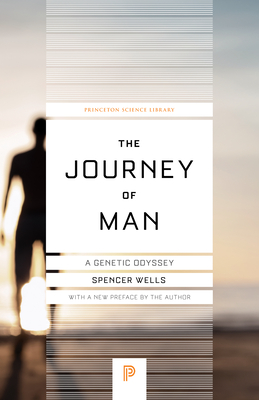Expedite your nonfiction book discovery process with Readara interviews, summaries and recommendations, Broaden your knowledge and gain insights from leading experts and scholars
In-depth, hour-long interviews with notable nonfiction authors, Gain new perspectives and ideas from the writer’s expertise and research, Valuable resource for readers and researchers
Optimize your book discovery process, Four-to eight-page summaries prepared by subject matter experts, Quickly review the book’s central messages and range of content
Books are handpicked covering a wide range of important categories and topics, Selected authors are subject experts, field professionals, or distinguished academics
Our editorial team includes books offering insights, unique views and researched-narratives in categories, Trade shows and book fairs, Book signings and in person author talks,Webinars and online events
Connect with editors and designers,Discover PR & marketing services providers, Source printers and related service providers

The Journey of Man: A Genetic Odyssey
Reference > General
- Princeton University Press
- Paperback
- 9780691176017
- 8.4 X 5.4 X 0.8 inches
- 0.5 pounds
- Reference > General
- (Single Author) Asian American
- English
Readara.com
Book Description
Around 200,000 years ago, a man--identical to us in all important respects--lived in Africa. Every person alive today is descended from him. How did this real-life Adam wind up father of us all? What happened to the descendants of other men who lived at the same time? And why, if modern humans share a single prehistoric ancestor, do we come in so many sizes, shapes, and races?
Showing how the secrets about our ancestors are hidden in our genetic code, Spencer Wells reveals how developments in the cutting-edge science of population genetics have made it possible to create a family tree for the whole of humanity. We now know not only where our ancestors lived but who they fought, loved, and influenced.
Informed by this new science, The Journey of Man is replete with astonishing information. Wells tells us that we can trace our origins back to a single Adam and Eve, but that Eve came first by some 80,000 years. We hear how the male Y-chromosome has been used to trace the spread of humanity from Africa into Eurasia, why differing racial types emerged when mountain ranges split population groups, and that the San Bushmen of the Kalahari have some of the oldest genetic markers in the world. We learn, finally with absolute certainty, that Neanderthals are not our ancestors and that the entire genetic diversity of Native Americans can be accounted for by just ten individuals.
It is an enthralling, epic tour through the history and development of early humankind--as well as an accessible look at the analysis of human genetics that is giving us definitive answers to questions we have asked for centuries, questions now more compelling than ever.
Author Bio
Spencer Wells is a leading population geneticist for whom the Genographic Project represents the ultimate marriage of his two great passions, biology and history. The 37-year-old scientist, author and documentary filmmaker has dedicated much of his career to studying humankind’s family tree and closing the gaps in our knowledge of human migration.
Now a National Geographic Explorer-in-Residence, Wells is spearheading the Genographic Project, calling it “a dream come true.” His hope is that the project, which builds on Wells’ earlier work featured in his book and television program, “The Journey of Man,” and is being conducted in collaboration with other leading global scientists, will capture an invaluable genetic snapshot of humanity before modern-day influences erase it forever.
Wells’ own journey of discovery began as a child whose zeal for history and biology led him to the University of Texas, where he enrolled at age 16, majored in biology, and graduated Phi Beta Kappa three years later. He then pursued his Ph.D. at Harvard University under the tutelage of distinguished evolutionary geneticist Richard Lewontin. Beginning in 1994, he conducted post-doctoral training at Stanford University’s School of Medicine with famed geneticist Dr. Luca Cavalli-Sforza, considered the “father of anthropological genetics.” It was there that Wells became committed to studying genomic diversity in indigenous populations and
unraveling age-old mysteries about early human migration.
Wells’ field studies began in earnest in 1996 with his survey of Central Asia. In 1998 Wells and his colleagues expanded their study to include some 25,000 miles of Asia and the former Soviet republics. His landmark research findings led to advances in the understanding of the male Y chromosome and its ability to trace ancestral human migration. Wells then returned to academia where, at Oxford University, he was appointed director of the Population Genetics Research Group of the Wellcome Trust Centre for Human Genetics at Oxford.
Following a stint as head of research for a Massachusetts-based biotechnology company, Wells made the decision in 2001 to focus on communicating scientific discovery through books and documentary films. From that was born “The Journey of Man: A Genetic Odyssey,” an award-winning book and documentary that aired on PBS in the U.S. and National Geographic Channel internationally. Written and presented by Wells, the film chronicled his globe-circling, DNA-gathering expeditions in 2001-02 and laid the groundwork for the Genographic Project.
Wells is the driving force behind the Genographic Project, overseeing all of its scientific aspects, as well as presenter and scientific adviser for “The Search for Adam,” a television program produced for the National Geographic Channel about the Genographic Project.
He is the recipient of numerous scientific awards, grants and fellowships.
Source: National Geographic
Videos




Community reviews
No Community reviews

